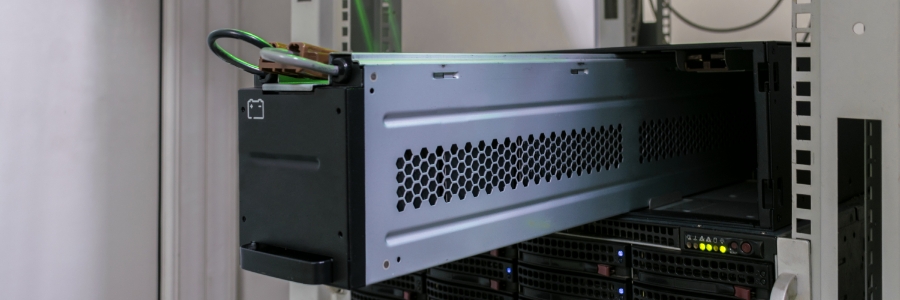As businesses embrace digital transformation, the specter of disasters looms larger than ever. Cyberattacks, system failures, and natural disasters are no longer rare occurrences but rather everyday challenges that organizations must confront. However, amidst these challenges, numerous myths and misconceptions about disaster recovery persist.
Debunking top disaster recovery myths: Essential insights for businesses
Protect your business with a disaster recovery plan

No organization wants to experience the nightmare of losing valuable customer data, financial records, or confidential documents. Unfortunately, unless proper steps are taken to safeguard your business from these disasters, you may be unknowingly putting your data at risk of getting lost or compromised.
Why your business needs a reliable UPS
Don’t be fooled by these 3 disaster recovery myths

While disaster recovery (DR) should be a top priority in running a business, it’s often overlooked. This is because business owners sometimes cling to outdated IT perspectives that can put their data at risk. Read more to learn about the top three myths about DR so you can make the best decisions for your business.
Is your business prepared for hurricanes?
Hurricane season is here. These harsh weather events can produce devastating high-speed winds, torrential rains, and microbursts, and can bring your business to a grinding halt. To address the threat of hurricanes, your company should have an effective hurricane disaster recovery policy in place.
How does the cloud support business continuity?
Having a business continuity plan ensures that you have constant access to your business’s data, even when a disaster strikes your locale. Understandably, your choice of backup storage media will be critical to the success of such a plan. In this blog, we’ll discuss why the cloud is the ideal place to keep your company’s data backups.
Why you should use a UPS for network hardware
Power outages are a major inconvenience to businesses. Even a few hours without electricity can lead to thousands of dollars in lost productivity and revenue. Fortunately, there’s something businesses like yours can do to reduce the effects of power outages, and that’s using an uninterrupted power supply (UPS) for your computers and networking equipment.
Ignore these outdated disaster recovery myths
Disaster recovery (DR) used to be an expensive solution that relied predominantly on tape backups. Today, cloud computing has dramatically changed the DR landscape, affording even small- and medium-sized businesses cheaper and more reliable DR solutions.
How ready is your business for hurricanes?
As hurricanes are a common event in many areas of the United States, business owners must take steps to secure their data. In this blog, we provide steps that will help you quickly recover your data and get back to business following a hurricane.
Determine recovery hierarchy
Certain parts of your IT system are more mission-critical than others.
The pitfalls of business continuity planning
If your managed IT services provider has been using the same business continuity plan (BCP) for years, your organization may be in trouble. BCPs should continuously be updated so you avoid overlooking or underestimating certain issues. Not updating your BCP is just one mistake that can harm your business.



